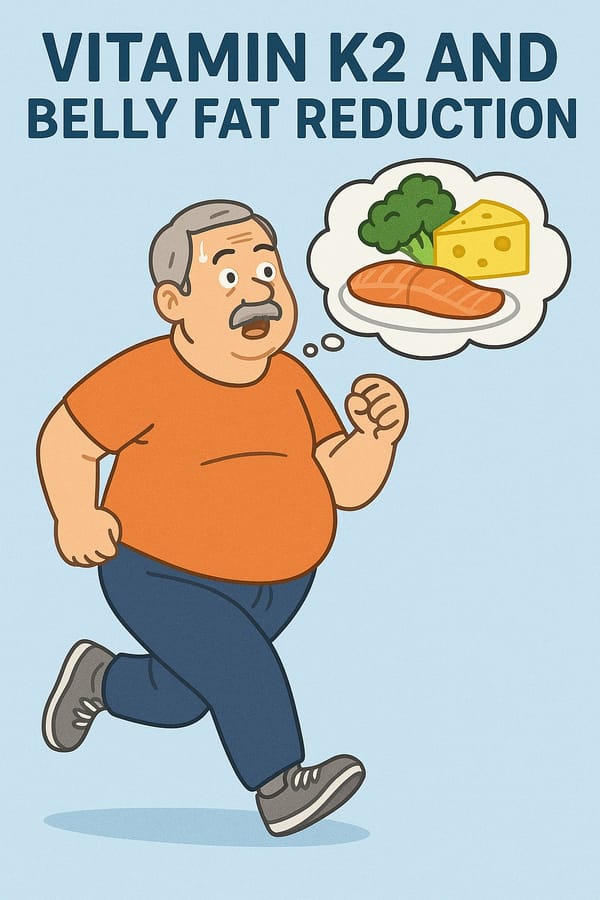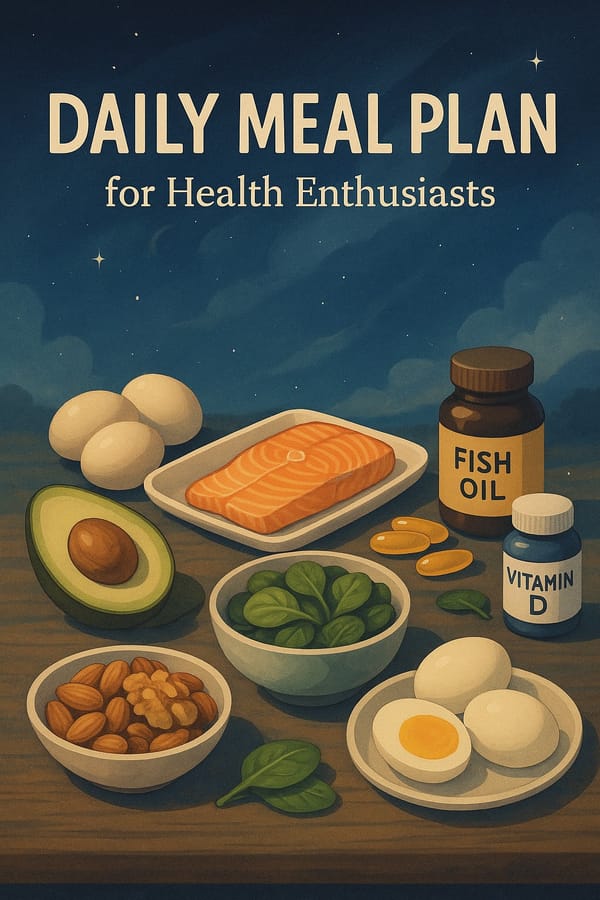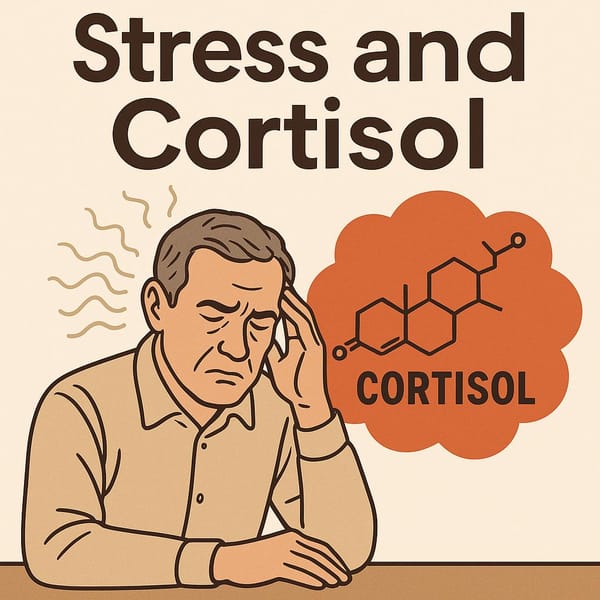Live Life to the Fullest and Revive Your Liver: A Comprehensive Guide for Adults 50+
Revitalize your liver health in your 50s and beyond with tips on nutrition, exercise, and lifestyle adjustments. This article offers science-based advice to protect your liver, reduce risk factors, and maintain a healthy life.

Introduction
Have you ever felt that you’ve been living life to the fullest, without paying much attention to your health—especially your liver? As we enter our 50s, it’s common to realize we need to start taking better care of ourselves, particularly when it comes to the liver. This vital organ works behind the scenes to detoxify chemicals, aid digestion, synthesize proteins, and store essential nutrients. Despite its significance, many of us tend to overlook it until problems arise.
Even as you get older, it’s never too late to rejuvenate and care for your liver. In this article, we’ll walk you through why the liver is so important, along with practical steps for nutrition, daily routines, stress management, and exercise specifically aimed at supporting liver function. With a focus on science-based information, you’ll gain the confidence to continue enjoying life at 50+ while keeping your health in top shape.
External Link Recommendation: Visit the World Health Organization (WHO) website for credible health guidelines, including nutritional advice.
1. Understanding the Liver’s Role
The liver is the largest solid organ in the abdomen, located on the right side beneath the diaphragm. It serves multiple life-sustaining functions:
- Detoxification: The liver processes toxins such as drugs, alcohol, and chemicals, converting them into forms that can be easily excreted.
- Bile Production: Bile helps break down dietary fats into smaller droplets for better absorption.
- Nutrient Storage: The liver stores vitamins A, D, E, K, and iron, as well as glucose in the form of glycogen for future energy needs.
- Protein Synthesis: It produces essential proteins in the blood, such as albumin, which helps maintain fluid balance, and clotting factors that aid blood coagulation.
In our 50s, years of unhealthy habits—like excessive alcohol consumption, smoking, or lack of regular exercise—can lead to liver damage. Now is the perfect time to pay closer attention to your liver’s well-being.
2. Signs Your Liver May Need Attention
The liver often remains silent until significant damage has occurred, so symptoms of liver issues can be subtle or easily mistaken for other conditions. Keep an eye out for:
- Chronic Fatigue: Feeling tired even with minimal activities.
- Sudden Weight Change: Rapid weight loss or gain could indicate fluid retention or toxin buildup.
- Jaundice (Yellowish Skin or Eyes): A sign that the liver isn’t processing bilirubin efficiently.
- Swelling or Discomfort on the Right Side of the Ribcage: May be due to liver enlargement.
- Persistent Itching: Linked to high levels of bile acids in the bloodstream.
Consult a healthcare provider for a comprehensive evaluation if you notice any of these signs, especially if you have risk factors like a history of heavy alcohol use, smoking, or obesity.
3. Dietary Steps to Support and Revitalize Your Liver
Nutrition plays a pivotal role in liver health. Adults 50+ should focus on:
3.1 Fresh Fruits and Vegetables
- Leafy Greens (Spinach, Broccoli, Kale): Rich in antioxidants and chlorophyll, aiding liver function.
- Berries (Blueberries, Blackberries, Raspberries): High in antioxidants to help reduce inflammation.
- Vitamin C-Rich Fruits (Oranges, Kiwis, Guavas): Boost collagen production and immune health.
3.2 High-Quality Protein
- White Fish (Cod, Tilapia) or Salmon: Omega-3 fatty acids help reduce liver inflammation.
- Lean Meats (Chicken, Turkey Breast): Repair tissues without overburdening the liver.
- Plant-Based Proteins (Soy, Lentils, Tofu): Suitable for lower-fat diets.
3.3 Healthy Fats
- Extra Virgin Olive Oil, Avocado Oil, Flaxseed Oil: Sources of monounsaturated fats and omega-3.
- Nuts and Seeds (Almonds, Walnuts, Pumpkin Seeds): Provide good fats and fiber.
3.4 Foods That Aid Detoxification
- Garlic and Onions: Contain allicin, which supports efficient toxin removal.
- Turmeric: Contains curcumin, known for its anti-inflammatory properties.
- Green Tea: Packed with catechins, which may benefit liver function.
3.5 Avoid or Limit Harmful Foods
- Alcohol: The primary enemy of liver health, leading to inflammation and permanent damage.
- Refined Sugars and Processed Foods: Increase the risk of non-alcoholic fatty liver disease (NAFLD).
- Excess Sodium: May lead to fluid retention and elevated blood pressure, stressing the liver.
Scientific Evidence: A 2019 study in Hepatology indicated that daily consumption of leafy greens could lower the risk of fatty liver disease by up to 30%.
4. Lifestyle Modifications to Protect Your Liver in Your 50s
- Reduce or Eliminate Alcohol: Heavy drinkers should consider seeking medical help or support groups to quit.
- Quit Smoking: Cigarette use damages blood vessels and increases the risk of liver cancer and other diseases.
- Maintain a Healthy Weight: Obesity is a significant risk factor for fatty liver, which can progress to chronic inflammation.
- Avoid Unnecessary Medications: Overuse of certain drugs (e.g., NSAIDs, acetaminophen) can damage the liver.
- Get Vaccinated: Hepatitis A and B vaccines can reduce viral-related liver issues.
5. Daily Habits for Liver Rejuvenation
- Stay Hydrated: Aim for 6–8 glasses of water per day to aid toxin removal.
- Exercise Regularly: Engage in moderate exercises like brisk walking, swimming, cycling, or yoga for at least 150 minutes per week to boost fat metabolism.
- Prioritize Sleep: Adequate rest supports liver cell regeneration and overall recovery.
- Schedule Downtime: Activities like reading, listening to music, or practicing meditation help lower stress hormones that can impact liver function.
Scientific Evidence: A 2021 study published in the Journal of Hepatology showed that regular exercise significantly reduces liver fat accumulation and inflammation.
6. The Importance of Routine Liver Checkups
You don’t have to wait for symptoms to appear. Yearly checkups can help detect liver problems early, especially if you:
- Have a history of heavy alcohol use
- Have a family history of liver disease
- Are overweight or obese
- Have existing health conditions like diabetes or high blood pressure
Common diagnostic tools include liver enzyme tests and ultrasound examinations, which can catch early warnings of liver dysfunction.
7. Rest and Stress Management
Alongside balanced nutrition and exercise, stress management plays a crucial role in liver health. Chronic stress triggers cortisol, a hormone that can disrupt liver function and immunity.
Stress Reduction Tips:
- Meditation or Breathing Exercises: 10–15 minutes daily can make a difference.
- Relaxing Hobbies: Read a book, listen to music, or explore creative outlets.
- Limit Screen Time: Especially before bedtime.
- Seek Professional Help: If stress becomes unmanageable, consult a mental health professional.
8. Professional Care for Liver Problems
If you’re diagnosed with conditions like fatty liver or chronic hepatitis, you should consult a medical specialist. Treatment may include:
- Medication: Cholesterol-lowering drugs, antiviral treatments, or medications to balance body chemistry.
- Specific Dietary Plans: A registered dietician can create a personalized meal plan.
- Exercise Recommendations: Tailored workouts to avoid undue stress on your body.
- Surgery: Only in severe cases (e.g., advanced liver disease or tumors).
Conclusion
Though your past lifestyle choices may have taken a toll on your liver, it’s not too late to restore and protect this essential organ. By focusing on proper nutrition—rich in fruits, vegetables, and healthy fats—regular exercise, adequate sleep, and stress management, you can optimize liver function and reduce the risk of severe complications.
After living life to the fullest, reward your body by giving your liver the attention it deserves. Following these science-backed guidelines will help ensure that you continue to thrive and enjoy life in your 50s and beyond.
Note: This article provides general information about liver care for adults 50+. It is not a substitute for professional medical advice. If you have any health concerns, consult a healthcare provider for personalized diagnosis and treatment.



